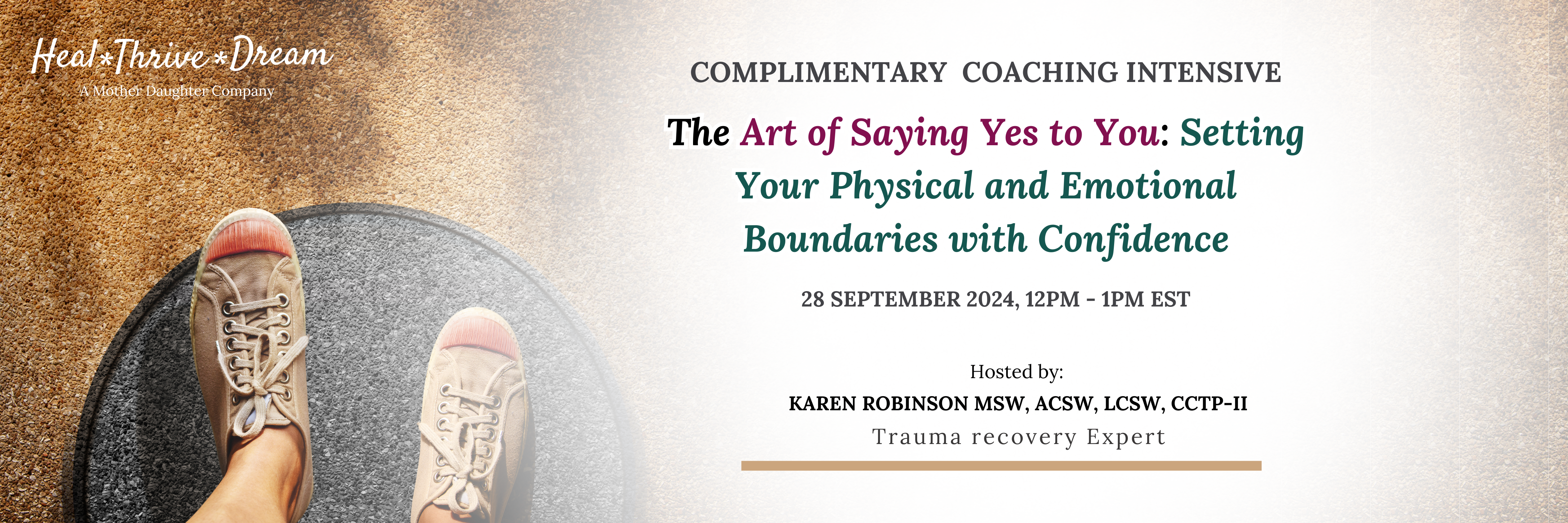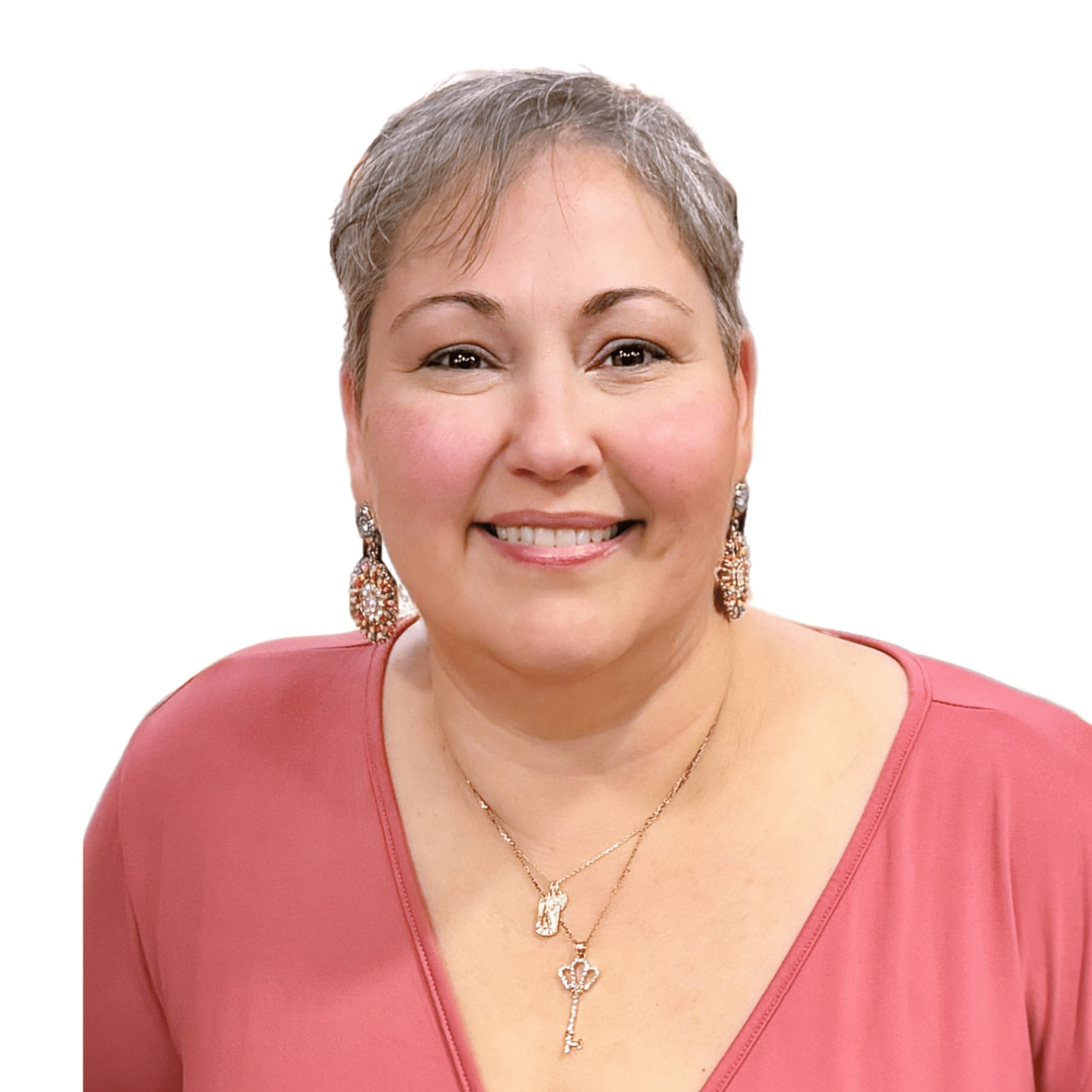A Survivor's Guide to Setting Physical Boundaries
Have you ever had your physical boundaries violated? This happens all too frequently to children and to women.
Your very concept of safety and personal space has been marred by past experiences, leaving you feeling vulnerable and exposed. But what if I told you that there is hope? That there are ways to rebuild your sense of physical autonomy and rediscover the power within your own body? Please reclaim your physical boundaries by implementing practical strategies to take back your power, feel safe, and assert your voice. Believe this. You can do this!
Check out my free coaching intensive: https://www.healthrivedream.com/settingboundaries/

Understanding the Importance of Personal Space
Before we delve into the how-tos, let's take a moment to acknowledge why personal space matters. Your personal space is more than just the physical area around you; it's a reflection of your autonomy, safety, and emotional well-being. Setting and maintaining personal boundaries is a way of asserting yourself and protecting your mental and emotional health.
Start With Baby Steps and Be Gentle with Yourself
Reclaiming your personal space doesn't mean erecting a barbed wire fence around yourself. It's a gradual process that begins with small, baby steps. Remember, it's okay to take your time and be gentle with yourself.
- Create your comfort zones - Start by identifying the areas in your life where you feel the most uncomfortable or violated. This could be physical spaces, such as your home or workplace, or even personal interactions with others. Admit these to yourself, and to someone you trust.
- Set your intentions - Once you've come to terms with the discomfort zones in your life, it is time to set clear intentions for what you'd like to change. What specific boundaries do you want to establish in these areas? What types of support do you need to make this happen?
- Visualize your safe place - Close your eyes and imagine your secure personal space. What does it look like? How does it feel? Visualizing your safe space can help you set goals for creating it.
Want more help with boundaries? Check out my free coaching intensive!
Communicate Your Boundaries
I can’t stress this enough. Reclaiming your personal space is much easier when you time to communicate your boundaries to others. This can be intimidating if you experienced multiple traumatic events, but it's empowering and necessary. Ask your network for support.
I highly recommend role-playing! Try these three ideas to set yourself up for communication success:
- Practice Assertive Communication. Assertive communication is the key to expressing your boundaries effectively. Use "I" statements to express your feelings and needs. Expressing your boundaries with “I” statements helps the other feel less defensive and they will more likely hear what you are stating instead of shutting down.
- Start your practice with people you trust. Begin by communicating your boundaries with people you trust and feel safe with. This will give you confidence and support as you navigate this process.
- Be Consistent. Consistency is vital when setting boundaries. Stick to your limits, and don't feel pressured to change them just because someone else wants you to. Others do not have to like your boundaries. I address this further in my coaching intensive.
Create Physical Safe Spaces
Your home should be your sanctuary, a place where you feel safe and comfortable. Here are some tips for creating physical safe spaces:
- Declutter and organize. Clutter around you leads to your brain/thoughts feeling cluttered as well.
- Decorate with comfort, peace, and softness. Ideas include soft blankets, soothing colors, artwork, choose items that bring you comfort.
- Distinguish an area in your home for relaxation. Dedicate a specific area in your home as a relaxation zone. This can be a cozy nook for reading, meditating, or simply unwinding.
Self-Care Practices
Reclaiming your personal space also involves taking care of your emotional well-being. See my next blog post about incorporating self-care practices into your daily routine to support your healing journey. But here is a quick recap of what to expect:
Mindfulness and Meditation - to stay grounded, present, and attuned to your feelings and needs.
Journaling - express your thoughts and emotions. A journal can be your therapy in a jiffy. Write about challenges in setting your physical or emotional boundaries.
Peer support - join a local or virtual support group. Talking to others who understand and validate your experiences can be incredibly healing. Consider the This is Us: Healing From Trauma Together community.
Embrace Progress, Not Perfection
Remember that setting physical boundaries is a journey, not a destination. It's okay to make mistakes along the way and adjust your boundaries as needed. I can’t even tell you how many mistakes I have made in my own boundary setting over the years. In fact, I’m still a work in progress! The important thing is that you are taking steps to reclaim your personal space and prioritize your well-being.
Reclaiming Your Personal Space is an Act of Self-Love
Reclaiming your personal space is an act of self-love and self-care. It's about recognizing your worth and valuing your own comfort and well-being. While the journey may have its ups and downs, every step you take towards setting physical boundaries brings you closer to a life where you feel safe, respected, and in control of your personal space.
You are not alone in this journey, and there is hope for a brighter, more comfortable future. By taking baby steps, communicating your needs, creating safe spaces, practicing self-care, and embracing progress, you can reclaim your personal space and find a renewed sense of empowerment and peace. Remember, your personal space is yours to define and protect, and you deserve a life where you feel safe, respected, and free to be yourself.
Discover transformative experience to set healthy boundaries, and prioritize self-care.




From the start this post is encouraging and empowering. I like the way that you have incorporated how you can help readers in the post by having links to your coaching intensive (I’m going to have to take a page from your book 😊).
The definition that you provided of personal space is spot on. It’s not just about the physical, personal space has a great impact on our emotional well-being.
I also liked the fact that you provided easy, actionable steps that one can take in order to reclaim their personal space and maintain boundaries. My niche is in stress management & self-care so I was particularly happy to see the ideas that you provided for self-care practices that your readers can try. Overall, this was a great, enjoyable post.
Hi Cassandra, I love the feedback provided and hope you consider sharing my post with your audience many times 🙂
Be well! Karen